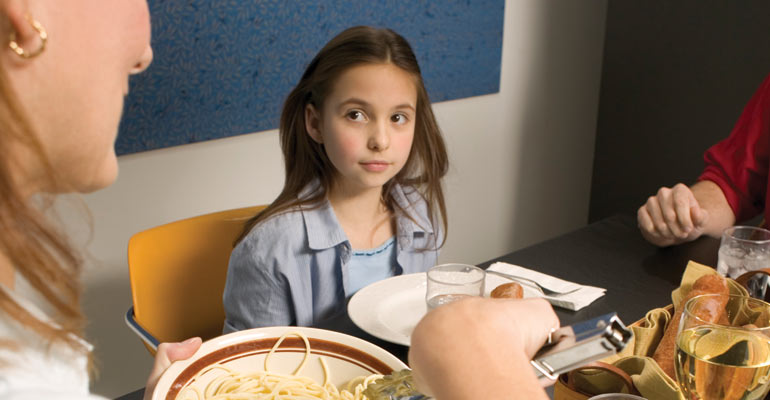Eleven-year-old Brianna bristled with indignation, glaring at her mother. “I know what I’m doing, leave me alone. Chelsea’s mom doesn’t treat her like a baby. I wish I lived with her!”
By age nine, most adoptees have begun reflecting on the “what ifs” that adoption entails. Your child may wonder what life would have been like had she been raised by her birth parents. Some preteens who have little or no birth family information fantasize that they’re the child of a movie star, a musician, or royalty. A child born in another country or culture may romanticize what life would have been like had he stayed in that place. Exposure to other families adds more concrete information for our children to digest.
Imagining Life in a Different Family
Visits to friends’ houses will show your child other kinds of family dynamics. There may be more or fewer siblings and a different number of adults. A friend may care for a much younger sibling or perform different household chores. Perhaps there’s a different ethnic or religious environment. Some families have quiet meals, and, in other homes, mealtimes are noisy, informal events. Even the size, layout, and furnishings of a friend’s home may be eye-opening for your child.
After an overnight stay, your child may wonder what it would be like to be a sibling in that family, to have been adopted into that home instead of yours. Children may voice such thoughts during an argument or power struggle:
“I wish Matt’s mother were my mother. He gets to stay up until 9. I hate going to bed at 8!”
“It’s so much more fun at Julie’s house. She has two sisters and a baby brother, and there’s always someone to play with. It’s boring here. Why can’t I have a baby brother?”
“At Beth’s house, when you finish eating, you can just get up and go play, and they have pizza all the time. Why couldn’t they have adopted me?”
What’s a Parent to Do?
- Don’t be alarmed. Pushing for change and greater independence are normal behaviors between the ages of nine and 12. Our children will rethink how they feel about adoption, their connection to us, and their lives many times as they grow.
- Remember that adoption just gives our kids different ammunition. During the normal separation and growth process, preteens will use anything they think will upset the balance of power. In our families, that may be zingers about adoption. In other families, it’s something else. Try not to overreact. If the comments fall flat, your child may not try them again.
- Respond to the underlying theme. Acknowledge your child’s feelings. Avoid the impulse to dig in your heels and defend yourself, your family, your lifestyle, or your decisions. This is a conversation with your child, not a battle with an enemy. Give yourself permission to be flexible and to change your mind, as well.
- Consider professional support if your child is sad, withdrawn, or angry much of the time, is having trouble in school or with friends, or displays changes in appetite or sleep patterns, whether or not he’s voicing negativity about his life or your family. If your child was adopted at an older age, and is displaying such behavior, seek help sooner rather than later.

